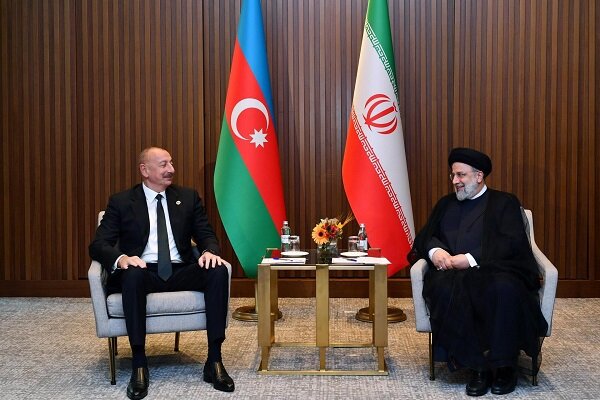
This is the English translation of a Turkish language article that was originally published by AVİM on 24 August 2023. AVİM Scholar in Residence İrem Akın contributed to the translation of this article.
Progress has been made within the Azerbaijan-Armenia peace talks regarding the mutual recognition of territorial integrity and the even more thorny issue of border demarcation. However, problems continue to arise concerning the Zangezur Corridor, which is an important transit route for the entire region. Armenia claims that the ceasefire agreement of 10 November 2020 does not stipulate the establishment of the Zangezur Corridor and that it should not be expected for the said corridor to exist in reciprocity to the Lachin Corridor.[1] However, the main objection to the corridor is coming from Iran, which is causing tensions between Azerbaijan and Iran. The telephone conversation between Iran’s Minister of Foreign Affairs Hossein Amir Abdullahiyan and Azerbaijan’s Minister of Foreign Affairs Jeyhun Bayramov in April 2023, in which the wish to continue diplomacy and dialogue was expressed, followed by Abdullahiyan's visit to Baku on 5 July[2], were promising developments for the relations between the two countries. The International North-South Transport Corridor and the Zangezur transport link were also discussed in Baku. Iran’s Minister of Foreign Affairs Abdullahiyan stated that the President of Iran has instructed the opening of the Aras Corridor with the intention of connecting the Azerbaijani mainland to Nakhchivan.[3]
The corridor brought up by Iran consists of the planned road and railway bridges over the Aras River.[4] Therefore, the Zangezur transportation route, which Azerbaijan wishes to realize because it is a shorter route and is also included in the Shusha Declaration, is not the issue referred to within this context. This project will provide a variety of transportation routes for Azerbaijan, but it will not constitute an alternative to Zangezur. Nonetheless, the change in Iran’s stance needs to be observed as a whole. The President of Iran Ibrahim Reisi mentioning of the inseparable bond between the Azerbaijanis of Iran and the Republic of Azerbaijan[5] is also important in terms of signs of change. The Secretary of Iran’s Supreme National Security Council Ali Akbar Ahmadian’s statements that Iran respects the territorial integrity and sovereignty of all neighboring nations and supports the peace talks between Armenia and Azerbaijan, particularly his emphasis that any foreign intervention will only complicate issues is noteworthy[6]. Iran is now also talking about the 3+3 formula and the subject of Iran, Türkiye, and Russia building the future of the region within the context of the conflicts in Caucasus (together with the other three relevant parties: Azerbaijan, Armenia, and Georgia) are on the agenda once again. Where there is diplomacy, there is the possibility of reconciliation. A multilateral diplomacy that includes the countries of the region can promise lasting peace and stability.
Iran’s Perceptions of National Security Threats
Two important reasons behind Iran’s opposition towards the Zangezur Corridor are Iran’s concern that the new situation in the region is developing in favor of Azerbaijan and that Iran will not be able to control the impact that this situation will have on its Turkic population. Azerbaijan is becoming a center of attraction as it increases its morale as well as its investments in military, defense, economy, and energy. Its success on the field is also increasing its influence and strengthening its discourse. The impact of this on the Azerbaijani Turks in Iran is also being intensified by Iran’s open support for Armenia in situations of conflict/war/search for reconciliation. The mentioned sociological impacts, together with Azerbaijan regaining control over its southern borders, will affect the balance of power. The opening of the Zangezur Corridor will also have a multiplier effect.
The second issue that causes Iran to view the new situation in the Caucasus as a national security threat is the development of the Azerbaijan-Israel relations, which include military-technical and security cooperation. Oil from Azerbaijan accounts for 40% of Israel’s total consumption. Israel is also a major arms supplier to Azerbaijan. Azerbaijan is an important country in Israel’s foreign policy strategy, also known as the “new periphery strategy”, which is based on fostering relations with states that are in proximity to the main source of threat to Israel’s security. This worsens Iran’s tendency to perceive Azerbaijan as a proxy of Israel and the idea that Israel has gained access to monitoring facilities within 7 kilometers of Iran. For Iran, both issues (internal balances and the “enemy country Israel” developing its capabilities through cooperation with Azerbaijan) are vital in terms of state survival. On the other hand, contacts with Saudi Arabia, the normalization initiative progressing with the support of China, and the recent talks with the US are developments that reduce the risks for Iran.
Meanwhile, risk mitigation for Iran is considered to be a security gap for Israel. Therefore, there is a competition involving Saudi Arabia, China, and the United States in the regulation of relations. Thus, as the network of relations and the balance of power in the region are being reshaped, the Zangezur Corridor becomes both a small detail within the big picture and important enough to determine the main colors of the picture.
Agreements that Provide Advantages for Iran
It is being claimed that direct and indirect talks between Iran and the US have turned into a memorandum of understanding. Accordingly, Iran is expected to release US prisoners, halt progress on highly enriched uranium and continue cooperation with the International Atomic Energy Agency (IAEA) in exchange for sanctions relief on oil sales and the release of several frozen funds. Iran has so far enriched its uranium up to 60%.[7] According to the understanding, Iran will maintain this percentage and will not reach 90%, which would be required for manufacturing nuclear weapons. Iran will also not install advanced centrifuges.[8] In return, the sanctions will be eased, funds will be released, and further punitive sanctions or condemnation by the UN Security Council and the IAEA will be deferred. In Israel, this compromise is seen as a de facto approval of Iran’s enrichment of uranium up to 60 percent. Israel also considers text is being called a memorandum and not an agreement as a way to evade the scrutiny of the US Congress.[9] It is interpreted that the US President Joe Biden is delaying an issue he cannot solve back so that he can buy time for the 2024 elections and that he is letting Iran gain time as well. One can certainly also believe that the US wants to freeze the rivalry with Iran, which is another obstacle other than Russia for its policies for the Asia-Pacific. It is also clear that the Iran-US reconciliation aggravates the perception that Israel is being left alone in the region and that the US had abandoned Israel in 2018, which leads Israel seeking out other options.[10]
The progress of the Saudi-Iranian negotiations towards reopening embassies and establishing diplomatic relations is indicative of developments that are changing the outlook for security and geopolitics in the Middle East. Saudi Arabia and Iran's reconciliation, which includes the principles of respect for sovereignty and non-interference in internal affairs, may mean a transformation in geopolitical competition fueled by proxy wars and sectarian division. The realization of Saudi Arabia's planned investments[11] in Iran could also provide Iran with an opportunity to adjust its economic data, which has deteriorated due to sanctions. For Iran, the agreements with the US and Saudi Arabia have consequences that mitigate its national security concerns. Iran indirectly prevents Israel from improving its relations with Saudi Arabia through the afore-mentioned agreements. As long as Saudi Arabia's demands to the US in exchange for a normalization process with Israel are at odds with the US effort to ease its security commitments in the Middle East, Iran wins, and Israel loses.
In fact, mediating Saudi-Israeli rapprochement is part of the US deterrence policy.[12] However, Saudi Arabia's demand for an air defense cooperation arrangement, security system guarantees, and privileged access to American weapons in return from the US leads delays in the normalization attempts. It is believed that Saudi Arabia wants assurances to have access to the same kind of sophisticated weapons available to Israel.[13] This is essentially a demand for an equalization of regional security. The main obstacle is the US's unwillingness to commit to binding security guarantees.
Although Israeli aircrafts have been allowed to use Saudi airspace, no further progress has been made toward normalization. The fact that Saudi Arabia has achieved the fastest growth in the last decade[14] underlines its status as both the dominant economic and military power in the region. In this sense, Saudi Arabia's seemingly greater willingness to improve its relations with Iran has meaningful implications for Iran. For now, Israel's strategy of isolating Iran by normalizing relations with Saudi Arabia seems to have stalled. Especially in the era of Israeli Prime Minister Benjamin Netanyahu, who is characterized as an extremist, it can be said that advancing relations has become even more pointless. Within this framework, it should be noted that the importance of Azerbaijan for Israel has increased. However, it would probably be rational for Iran to try to improve its relations with Azerbaijan rather than ignoring it or preventing its efforts to reinforce its military success in the field with diplomacy.
Competition over Trade Routes
In conclusion, while Azerbaijan's liberation of its occupied territories has eliminated a major problem in the Caucasus, the acceptance of the new geopolitical situation seems to depend on the affected parties finding solutions that best suit their objectives. Armenia has declared that it recognizes Azerbaijan's territorial integrity, even as it seeks support from the international community to put political pressure on Azerbaijan. While technical progress has been made on the demarcation of borders, the corridors and the status of the Armenian population and military forces remaining in the territories returned to Azerbaijan are issues that require compromise. In addition to what Iran sees as national security threats, it is understood that the competition for dominance over trade routes is also a determining factor in Iran's stance.
The opening of the Zangezur Corridor means the completion and realization of the fastest route of China's Belt and Road Initiative (BRI) to Europe. The Zangezur Corridor has the potential to connect Azerbaijan, as well as China and all of Central Asia, even Armenia, to Europe more easily and faster. This transportation line gains global importance, especially in transit cargo transportation with high tonnage. The closest alternative in terms of speed and security is the route that passes through Azerbaijan and continues through Georgia, leaving Armenia out of the picture. Therefore, the opening of the Zangezur Corridor provides Armenia with a commercial advantage. Although Iran thinks that this corridor will put the Iran-Armenia and Iran-Russia transportation lines at risk, it is a route that offers diversification for Iran.
On the other hand, the agreement signed by Iran and Russia for the construction of the Rasht-Astara railway, which is seen as an important transportation network for the North-South Corridor,[15] should also be taken into account. Azerbaijan is on the transit route of the corridor, which starts from India and extends to Russia and also provides access to Northern and Western Europe. The Zangezur transportation line will also support the North-South Corridor for transportation to Europe. Therefore, in fact, the countries of the region are more interested in a geopolitical order that emphasizes trade relations and economic cooperation. This is also true for Iran, whose economy is suffering from sanctions and public dissatisfaction exacerbated by economic hardship. When considering its foreign policy options, it would be in line with the real political situation to give peace and stability in the Caucasus a chance. By taking advantage of its seat at the table, Iran will be able to make a diplomatic success out of this and become one of the contributors to a multi-stakeholder regional initiative.
[1] The President of Azerbaijan İlham Aliyev’s explanation on the subject was as follows; “Zangezur was not included in the agreement in words, but there should be a transportation link between the western regions of Azerbaijan and the Nakhchivan Autonomous Republic and Armenia should provide it.”
[2] Iran’s Minister of Foreign Affairs Emir Abdullahiyan met with his Azerbaijani counterpart Bayramov and the President of Azerbaijan Ilham Aliyev during his visit to Baku to attend the meeting of the Foreign Ministers of the Non-Aligned Movement in the Republic of Azerbaijan.
[3] “Emir Abdullahiyan: Azerbaycan Cumhuriyeti'nin güvenliğini İran'ın güvenliği olarak görüyoruz”, 5 Temmuz 2023, Pars Today, https://parstoday.ir/tr/news/iran-i241404-emir_abdullahiyan_azerbaycan_cumhuriyeti'nin_g%C3%BCvenli%C4%9Fini_%C4%B0ran'%C4%B1n_g%C3%BCvenli%C4%9Fi_olarak_g%C3%B6r%C3%BCyoruz
[4] Iran and Azerbaijan signed a memorandum of understanding in Baku on 11 March 2022 on a new transport link between Azerbaijan and the Nakhchivan Autonomous Republic through Iranian territory. According to this memorandum, two road and railway bridges will be built over the Aras River.
[5] “Azeris in Iran and Republic of Azerbaijan inseparably linked: Raisi”, Tehran Times, June 10, 2023, https://www.tehrantimes.com/news/485604/Azeris-in-Iran-and-Republic-of-Azerbaijan-inseparably-linked
[6] “Diplomacy best ways to resolve disputes: Iran security chief”, Tehran Times, August 8, 2023, https://www.tehrantimes.com/news/487700/Diplomacy-best-ways-to-resolve-disputes-Iran-security-chief
[7] The latest estimate by the UN's nuclear watchdog, the International Atomic Energy Agency, is that Iran has 114.1 kilograms (251 pounds) of uranium enriched to 60% purity. It is also reported that in May 2023, the IAEA detected a small amount of uranium enriched to 84 percent purity, slightly below the 90 percent purity level typically used for weapons and found Iran's explanation that it was an accidental byproduct sufficient.
[8] Andrew Parasiliti, “Is Biden’s reset on Iran paying off?”, Al Monitor, August 18, 2023, https://www.al-monitor.com/originals/2023/08/bidens-reset-iran-paying ; Andrew Parasiliti, “US détente with Iran combines diplomacy, deterrence”, Al Monitor, June 16, 2023, https://www.al-monitor.com/originals/2023/06/us-detente-iran-combines-diplomacy-deterrence#ixzz858Nt3gNP ; “Report: Netanyahu says US and Iran in talks for a ‘mini-deal’ Israel can live with”, Times of Israel, June 13, 2023, https://www.timesofisrael.com/report-netanyahu-says-us-and-iran-in-talks-for-mini-deal-israel-can-live-with/
[9] Jacob Nagel, “Israel must oppose the Iran understandings with all it’s got”, Israel Hayom, June 16, 2023, https://www.israelhayom.com/opinions/israel-must-oppose-the-iran-understandings-with-all-its-got/
[10] Micah Halpern, “The Iran-Saudi deal is a nightmare for Israel, the US, and the world”, The Jerusalem Post, August 21, 2023, https://www.jpost.com/opinion/article-755501 ; Ethan Bronner, Henry Meyer, “As Iran Emerges From Isolation, Israel Is Feeling Cornered”, Bloomberg, June 13i 2023, https://www.bloomberg.com/news/articles/2023-06-13/will-israel-attack-iran-military-preparations-a-message-to-the-us-tehran#xj4y7vzkg
[11] “The Impact of the Saudi-Iranian Rapprochement on Middle East Conflicts”, International Crisis Group, April 19, 2023, https://www.crisisgroup.org/middle-east-north-africa/gulf-and-arabian-peninsula/iran-saudi-arabia/impact-saudi-iranian
[12] Parasiliti, “US détente with Iran combines diplomacy, deterrence”.
[13] Ramzy Ezzeldin Ramzy, “The Saudi Gambit in Washington”, The Cairo Review of Global Affairs, May 28, 2023, https://www.thecairoreview.com/essays/the-saudi-gambit-in-washington/
[14] Amine Mati and Sidra Rehman, “Saudi Arabia to Grow at Fastest Pace in a Decade”, IMF, August 17, 2022, https://www.imf.org/en/News/Articles/2022/08/09/CF-Saudi-Arabia-to-grow-at-fastest-pace
[15] The International North-South Transport Corridor project is the product of an agreement signed in September 2000 between Russia, Iran, and India. Armenia, Azerbaijan, Kazakhstan, Belarus, Tajikistan, Turkmenistan, Ukraine, Türkiye, and Bulgaria have also joined the project.
© 2009-2025 Center for Eurasian Studies (AVİM) All Rights Reserved
No comments yet.
-
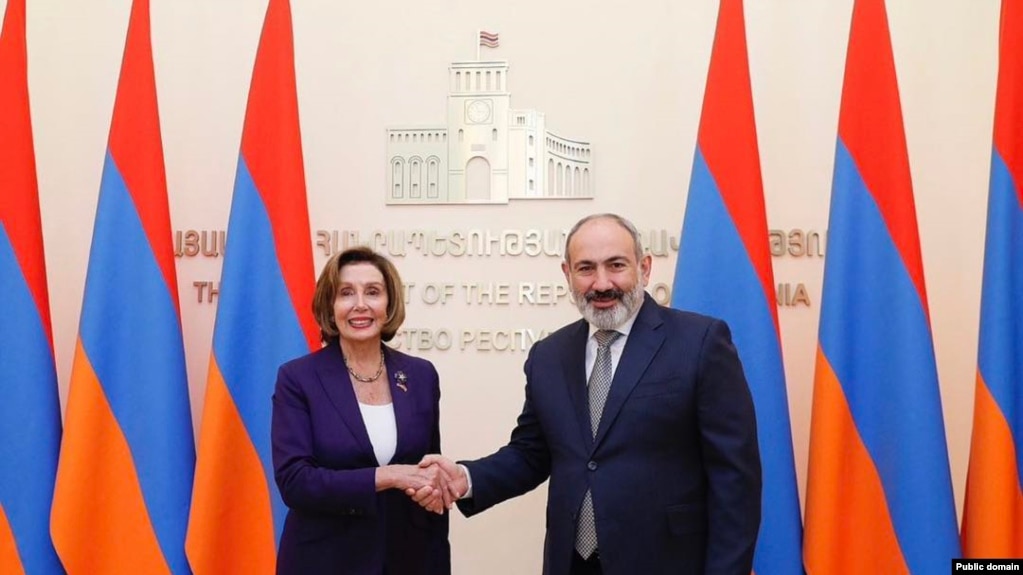 SUPPORT TO ARMENIA, INTIMIDATION AGAINST THE CAUCASUS, BLOCKADE TOWARDS RUSSIA
SUPPORT TO ARMENIA, INTIMIDATION AGAINST THE CAUCASUS, BLOCKADE TOWARDS RUSSIA
Gözde KILIÇ YAŞIN 21.09.2022 -
 THE CAUCASUS IN IRAN'S FOREIGN POLICY
THE CAUCASUS IN IRAN'S FOREIGN POLICY
Gözde KILIÇ YAŞIN 05.09.2023 -
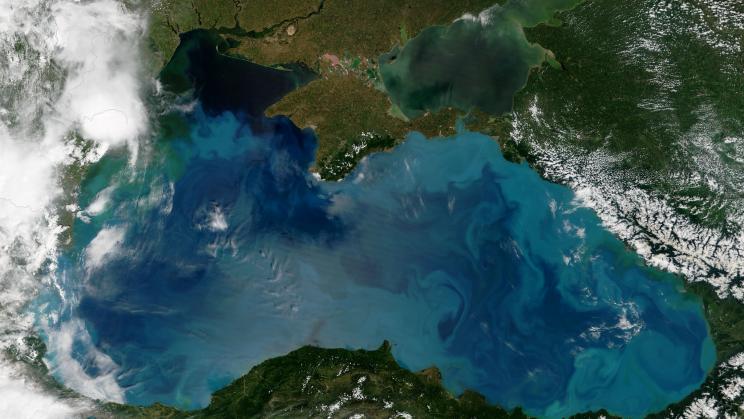 RISKS AND OPPORTUNITIES REGARDING THE BLACK SEA SAFETY
RISKS AND OPPORTUNITIES REGARDING THE BLACK SEA SAFETY
Gözde KILIÇ YAŞIN 30.06.2022 -
 THE LEGAL STATUS OF THE FENER GREEK PATRIARCHATE
THE LEGAL STATUS OF THE FENER GREEK PATRIARCHATE
Gözde KILIÇ YAŞIN 19.10.2022 -
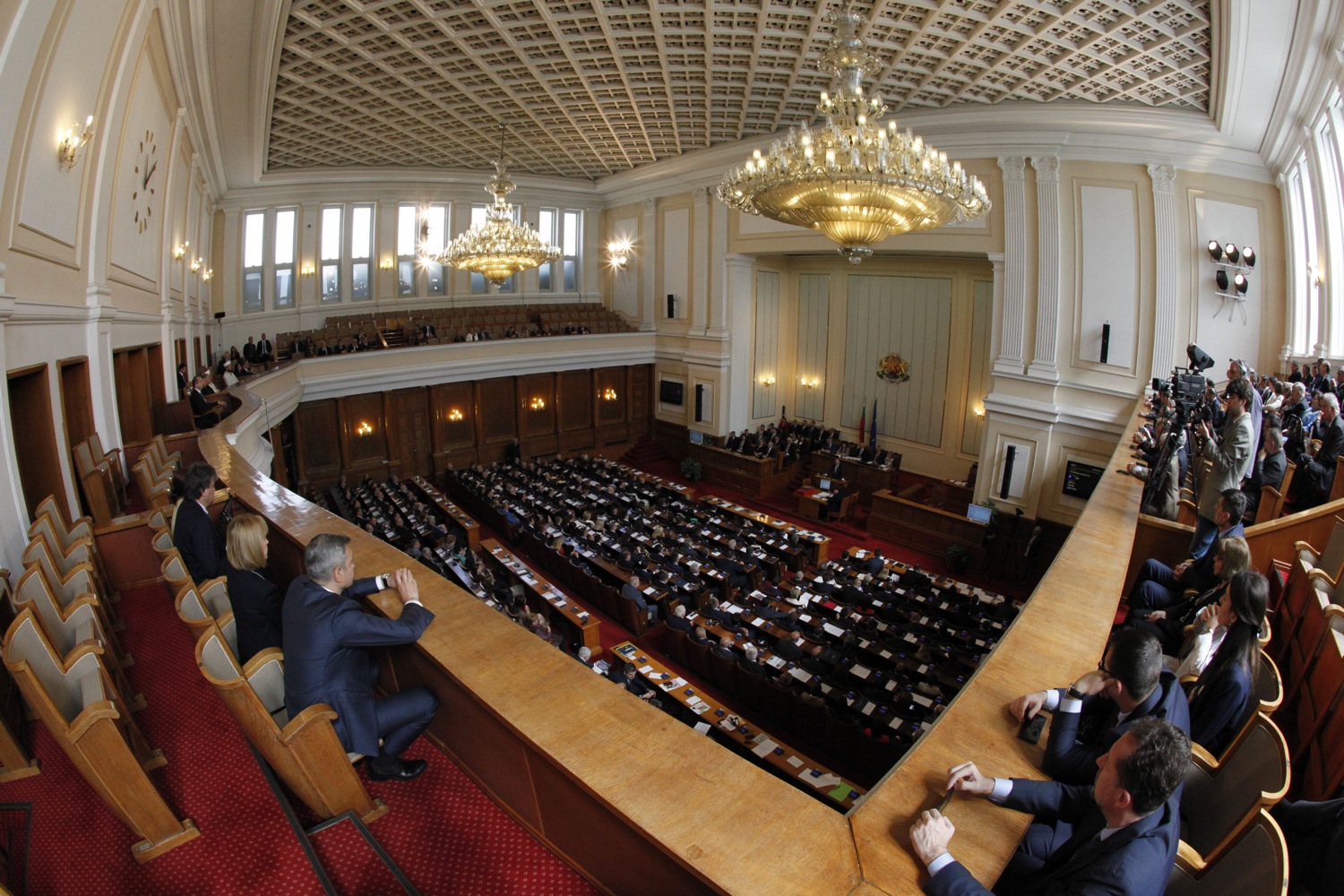 THE NECESSITY FOR A GOVERNMENT THAT CAN PULL BULGARIA OUT OF CRISIS
THE NECESSITY FOR A GOVERNMENT THAT CAN PULL BULGARIA OUT OF CRISIS
Gözde KILIÇ YAŞIN 29.05.2023
-
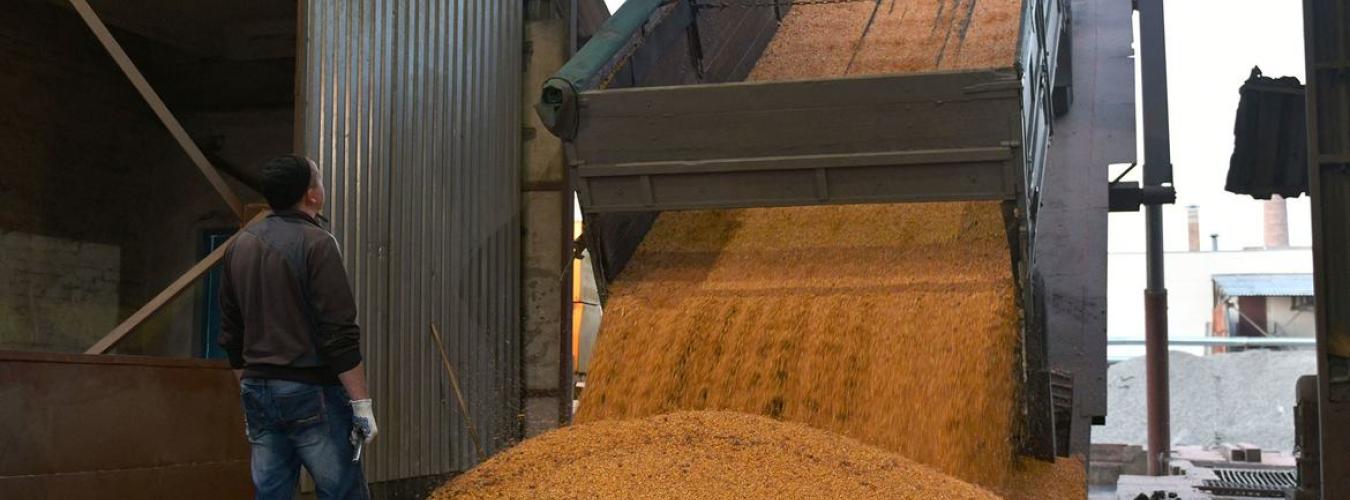 THE GRAIN INITIATIVE AND THE BLACK SEA SECURITY - I
THE GRAIN INITIATIVE AND THE BLACK SEA SECURITY - I
Turgut Kerem TUNCEL 03.08.2023 -
 THE NECESSITY FOR A GOVERNMENT THAT CAN PULL BULGARIA OUT OF CRISIS
THE NECESSITY FOR A GOVERNMENT THAT CAN PULL BULGARIA OUT OF CRISIS
Gözde KILIÇ YAŞIN 29.05.2023 -
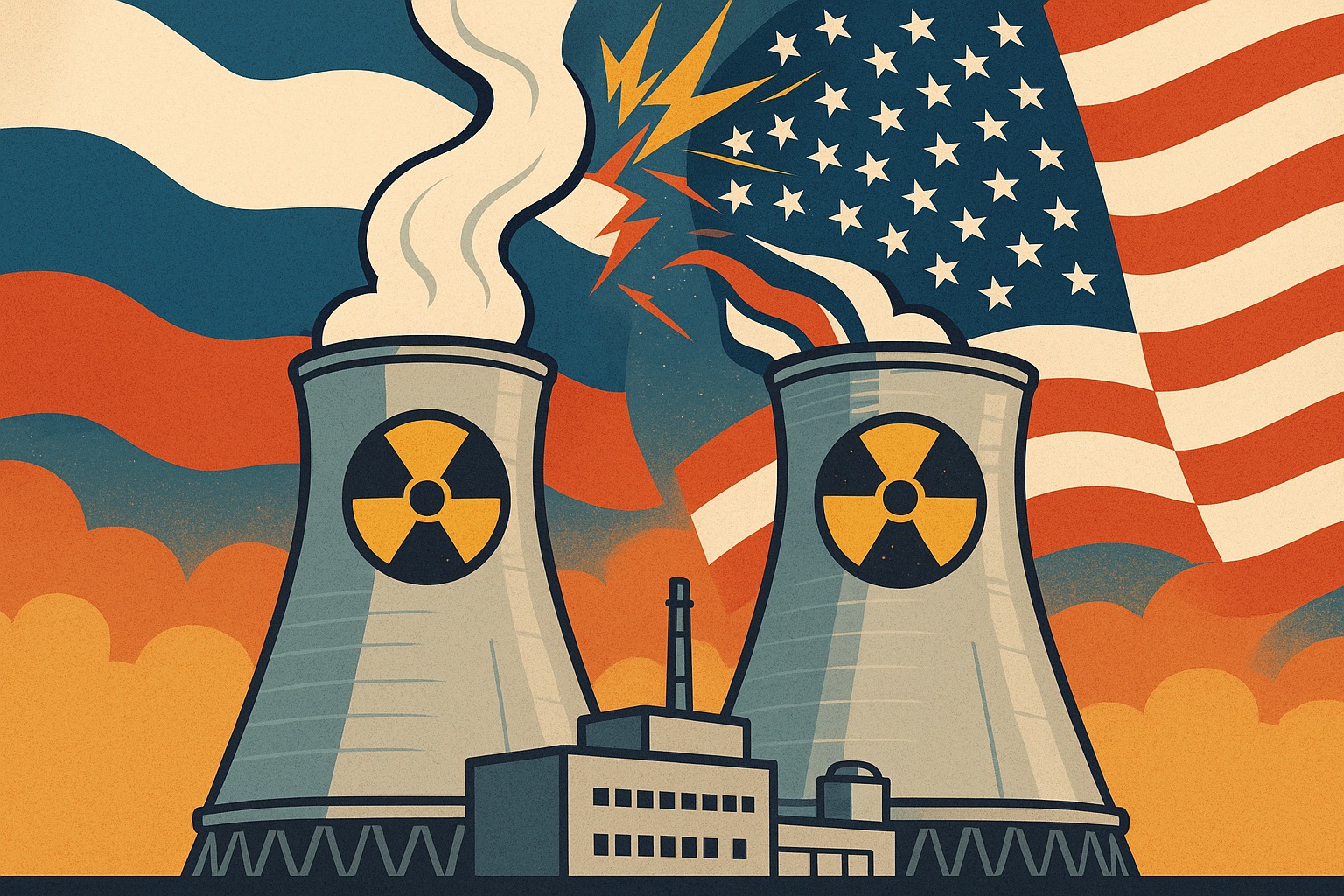 ARMENIA’S NUCLEAR DILEMMA: CAUGHT BETWEEN RUSSIA AND THE WEST
ARMENIA’S NUCLEAR DILEMMA: CAUGHT BETWEEN RUSSIA AND THE WEST
Bekir Caner ŞAFAK 12.11.2025 -
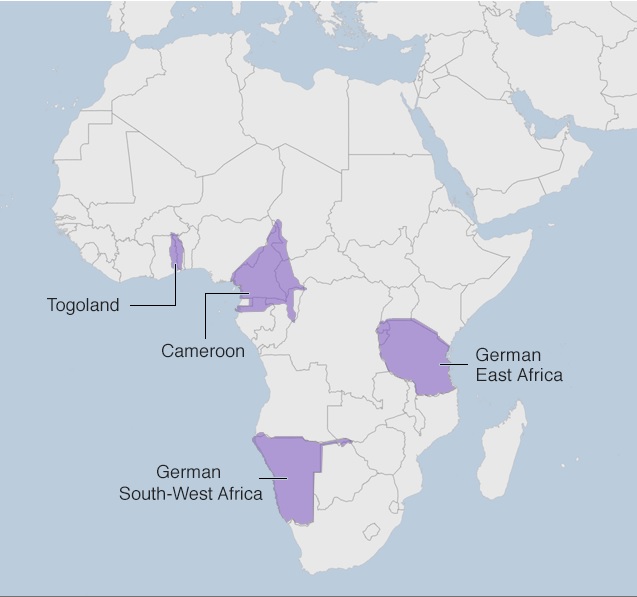 GERMAN COLONIAL LEGACY: TANZANIA AND THE HUMBOLDT FORUM
GERMAN COLONIAL LEGACY: TANZANIA AND THE HUMBOLDT FORUM
Teoman Ertuğrul TULUN 01.02.2021 -
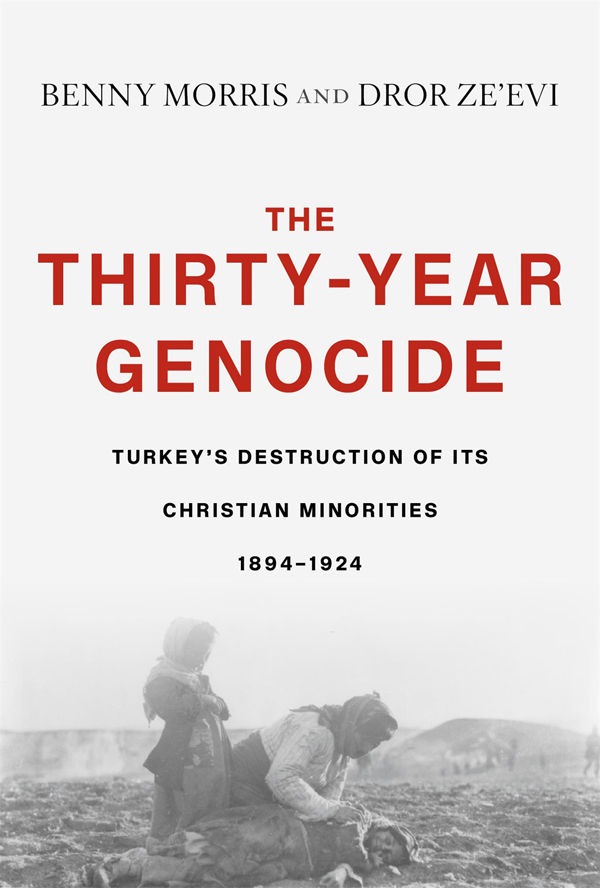 BOOK REVIEW: THE THIRTY-YEAR GENOCIDE
BOOK REVIEW: THE THIRTY-YEAR GENOCIDE
AVİM 21.08.2019
-
25.01.2016
THE ARMENIAN QUESTION - BASIC KNOWLEDGE AND DOCUMENTATION -
12.06.2024
THE TRUTH WILL OUT -
27.03.2023
RADİKAL ERMENİ UNSURLARCA GERÇEKLEŞTİRİLEN MEZALİMLER VE VANDALİZM -
17.03.2023
PATRIOTISM PERVERTED -
23.02.2023
MEN ARE LIKE THAT -
03.02.2023
BAKÜ-TİFLİS-CEYHAN BORU HATTININ YAŞANAN TARİHİ -
16.12.2022
INTERNATIONAL SCHOLARS ON THE EVENTS OF 1915 -
07.12.2022
FAKE PHOTOS AND THE ARMENIAN PROPAGANDA -
07.12.2022
ERMENİ PROPAGANDASI VE SAHTE RESİMLER -
01.01.2022
A Letter From Japan - Strategically Mum: The Silence of the Armenians -
01.01.2022
Japonya'dan Bir Mektup - Stratejik Suskunluk: Ermenilerin Sessizliği -
03.06.2020
Anastas Mikoyan: Confessions of an Armenian Bolshevik -
08.04.2020
Sovyet Sonrası Ukrayna’da Devlet, Toplum ve Siyaset - Değişen Dinamikler, Dönüşen Kimlikler -
12.06.2018
Ermeni Sorunuyla İlgili İngiliz Belgeleri (1912-1923) - British Documents on Armenian Question (1912-1923) -
02.12.2016
Turkish-Russian Academics: A Historical Study on the Caucasus -
01.07.2016
Gürcistan'daki Müslüman Topluluklar: Azınlık Hakları, Kimlik, Siyaset -
10.03.2016
Armenian Diaspora: Diaspora, State and the Imagination of the Republic of Armenia -
24.01.2016
ERMENİ SORUNU - TEMEL BİLGİ VE BELGELER (2. BASKI)
-
AVİM Conference Hall 24.01.2023
CONFERENCE TITLED “HUNGARY’S PERSPECTIVES ON THE TURKIC WORLD"









